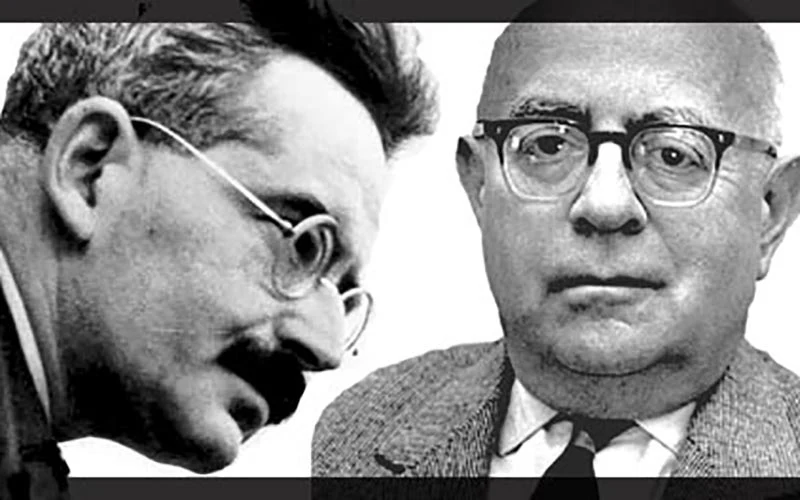Dialectical thought according to Adorno
Dialectical thought is an attempt to break through the coercion of logic by its own means. But since it must use these means, it is at every moment in danger of itself acquiring a coercive character: the ruse of reason would like to hold sway over the dialectic too.

Our new set of Radical Thinkers have just been released and to celebrate the new edition of Theodor Adorno's Minima Moralia: Reflections from Damaged Life we're publishing an excerpt from this beloved collection every day.
Bequest. - Dialectical thought is an attempt to break through the coercion of logic by its own means. But since it must use these means, it is at every moment in danger of itself acquiring a coercive character: the ruse of reason would like to hold sway over the dialectic too. The existing cannot be overstepped except by means of a universal derived from the existing order itself. The universal triumphs over the existing through the latter's own concept, and therefore, in its triumph, the power of mere existence constantly threatens to reassert itself by the same violence that broke it. Through the absolute rule of negation, the movement of thought as of history becomes, in accordance with the pattern of immanent antithesis, unambiguously, exclusively, implacably positive.
Every thing is subsumed under the principal economic phases and their development, which each in turn historically shape the whole of society; thought in its entirety has something of what Parisian artists call le genre chef d'oeuvre. That calamity is brought about precisely by the stringency of such development; that this stringency is itself linked to domination, is, at the least, not made explicit in critical theory, which, like traditional theory, awaits salvation from stage-by-stage progression. Stringency and totality, the bourgeois intellectual ideals of necessity and generality, do indeed circumscribe the formula of history, but for just this reason the constitution of society finds its precipitate in those great, immovable, lordly concepts against which dialectical criticism and practice are directed. If Benjamin said that history had hitherto been written from the standpoint of the victor, and needed to be written from that of the vanquished,1 we might add that knowledge must indeed present the fatally rectilinear succession of victory and defeat, but should also address itself to those things which were not embraced by this dynamic, which fell by the wayside - what might be called the waste products and blind spots that have escaped the dialectic. It is in the nature of the defeated to appear, in their impotence, irrelevant, eccentric, derisory. What transcends the ruling society is not only the potentiality it develops but also all that which did not fit properly into the laws of historical movement. Theory must needs deal with cross-gained, opaque, unassimilated material, which as such admittedly has from the start an anachronistic quality, but is not wholly obsolete since it has outwitted the historical dynamic. This can most readily be seen in art. Children's books like Alice in Wonderland or Struwwelpeter, of which it would be absurd to ask whether they are progressive or reactionary, contain incomparably more eloquent ciphers even of history than the high drama of Hebbel, concerned though it is with the official themes of tragic guilt, turning points of history, the course of the world and the individual, and in Satie's pert and puerile piano pieces there are flashes of experience undreamed of by the school of Schonberg, with all its rigour and all the pathos of musical development behind it. The very grandeur of logical deductions may inadvertently take on a provincial quality. Benjamin's writings are an attempt in ever new ways to make philosophically fruitful what has not yet been foreclosed by great intentions. The task he bequeathed was not to abandon such an attempt to the estranging enigmas of thought alone, but to bring the intentionless within the realm of concepts: the obligation to think at the same time dialectically and undialectically.
1 . Walter Benjamin, Illuminations, London 1973, pp. 258-9.
